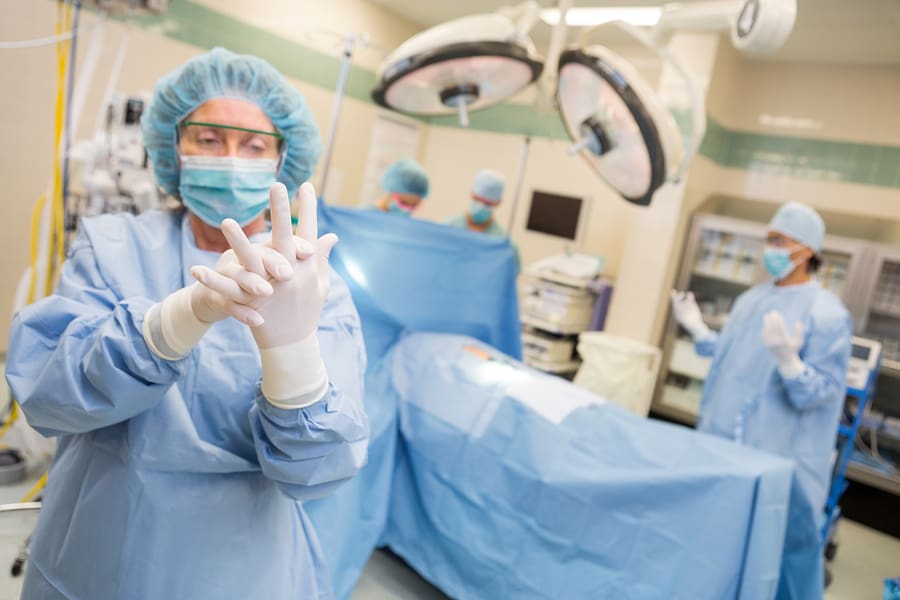If you’re considering a career as a surgical technologist, it’s essential to understand the multifaceted role you’ll play in the operating room. Surgical technologists, often referred to as surgical techs, are integral members of surgical teams, ensuring that procedures are conducted safely and efficiently. In this article, we’ll explore the various skills and responsibilities that make surgical technologists indispensable in the world of healthcare.
Infection Control and Sterile Technique
One of the primary responsibilities of a surgical technologist is infection control. Infection prevention is paramount in the operating room, as patients are exceptionally vulnerable during surgery. Surgical techs are tasked with:
- Preparing the Operating Room: This involves meticulously arranging sterile instruments and equipment, ensuring proper patient draping, and creating a sterile environment where surgical procedures can take place without the risk of contamination.
- Adherence to Sterile Protocols: Surgical technologists follow strict protocols to maintain sterility. They help the surgical team “scrub in” by dressing in surgical gowns, gloves, eye covers, masks, shoe covers, and head covers. They monitor the entire team to ensure compliance with sterile practices.
Preparation of Surgical Instruments and Equipment
Surgical technologists are responsible for the preparation and organization of surgical instruments and equipment. This entails:
- Inspecting Instruments: Surgical techs must inspect instruments for cleanliness and functionality, ensuring that everything is in proper working order.
- Assembling and Arranging: They assemble the required instruments and arrange them in a manner that facilitates easy access for the surgical team during the procedure.
Patient Care
Patient care is at the heart of a surgical technologist’s role. They are involved in various aspects of patient care:
- Positioning and Skin Preparation: Surgical techs assist in positioning patients on the operating table and preparing the surgical site, playing a crucial role in ensuring patient safety and comfort.
- Monitoring Patient Well-being: Throughout the procedure, they monitor the patient’s condition, responding to any changes or concerns promptly.
Communication Skills
Effective communication is vital in the operating room. Surgical technologists must:
- Communicate Clearly: They need to communicate clearly and efficiently with the surgical team, anticipating their needs and providing instruments and supplies as required.
Problem-Solving and Adaptability
In the fast-paced environment of the operating room, unexpected situations can arise. Surgical techs must:
- Troubleshoot: They should be prepared to troubleshoot equipment issues and assist in resolving unforeseen surgical complications.
- Quick Thinking: Adaptability and quick thinking are invaluable when handling unexpected challenges during surgery.

Attention to Detail
The precision and attention to detail exhibited by surgical technologists are critical to the success of any surgical procedure:
- Meticulous Arrangement: They meticulously arrange and account for all instruments and supplies, ensuring that nothing is missing or contaminated during the procedure.
Physical Stamina
Long hours on their feet are common for surgical technologists. They must have the physical endurance to remain focused and perform their duties without fatigue.
Technical Proficiency
Surgical techs should be proficient in operating and troubleshooting various medical devices and equipment used in the operating room, such as surgical robots, monitors, and anesthesia machines.
Emotional Resilience
In emotionally taxing situations, surgical technologists need to:
- Maintain Composure: Keeping composure and emotional resilience is essential for their well-being and that of the surgical team and patients.
Continued Education
The healthcare field is dynamic, with evolving surgical techniques and equipment. Surgical technologists must prioritize:
- Continued Education: Staying updated on the latest practices and equipment through ongoing education and professional development.
In conclusion, the role of a surgical technologist is diverse and demanding, encompassing a wide range of responsibilities crucial for the success of surgical procedures. To excel in this profession, individuals must possess a unique blend of technical skills, attention to detail, strong communication, adaptability, and a commitment to maintaining patient safety and a sterile operating environment.

